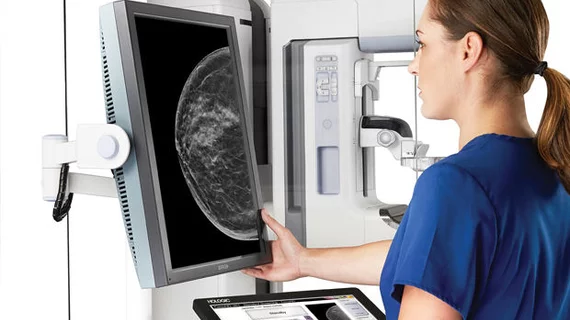Is it OK to delay follow-ups for 'probably benign' abnormalities on mammography screening?
Many were concerned that delays in care inflicted by COVID restrictions also would potentially delay diagnoses, causing undue harm for patients. But new data suggest that in some cases, such delays are acceptable and safe.
For mammographic abnormalities not deemed suspicious for malignancy, postponing recommended workup of the findings due to risks associated with the spread of COVID (or other factors) is a reasonable option, according to newly published data in Clinical Imaging.
“Specifically, in our breast imaging department, contrary to that was recommended by the Breast Imaging Reporting and Data System (BI-RADS) lexicon, if findings on the screening mammography were deemed to be not suspicious for malignancy, the workup of the abnormality was postponed to after the pandemic plateau, straight from screening,” corresponding author of the paper Vivianne Freitas, with the Joint Department of Medical Imaging at the University of Toronto, and co-authors explained.
For the study, experts analyzed nearly 2,000 mammography screenings that took place between February and March of 2020, when callbacks were being deferred during the initial COVID lockdowns. Patients with reports containing abnormalities deemed probably benign during this time were included; this resulted in a total of 99 women with probably benign findings.
Out of those 99 women with abnormalities and delayed callbacks, just two were diagnosed with cancer. In both cases, the women had focal asymmetries that were later diagnosed as invasive ductal carcinoma.
“The low rate of cancer detected suggests that a delayed callback may be a reasonable option for some likely benign findings when immediate callback is not an option, such as during a pandemic,” the authors suggested.
Despite their findings, the authors maintained that larger studies are necessary to confirm their results, as well as to help develop protocols for similar scenarios that would inhibit follow-up visits.
The study abstract is available here.

